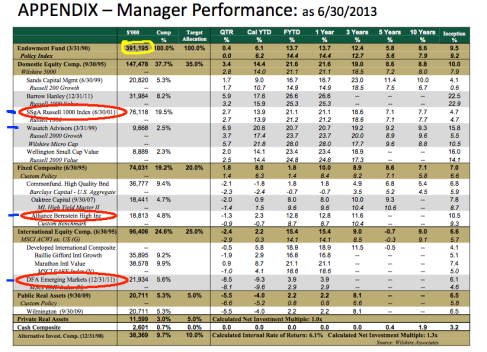“Israel is our strongest ally in the region and its only established democracy…we must preserve our total commitment to our unique defense relationship with Israel by fully funding military assistance and continuing work on the Arrow and related missile defense programs.”
-President Obama at 2014 American Israel Public Affairs Committee (AIPAC) Conference
Too often, because of our nation’s ties to Israel and because of our leaders’ heaping praises of the Jewish state (which may or may not have anything to do with this), we as Americans are lead to believe that Israel is the lone beaming beacon of light radiating from the mired Middle East. The following illustrates America’s general tilt towards Israel in a poll conducted by Gallup in 2013.
The product of heavy lobbying has furthered the notion that Israel is the symbol of hope in the region; its economic and military advancements and citizen-involved government the model which the world hopes to see other Middle Eastern countries adopt.
Too often it is Israel credited with being the peace-wanting party in its conflict with the Arabs. But too often Israel has been the aggressor, being the target of 77 United Nations resolutions, as opposed to one resolution targeting the Palestinian Authority, the interim governing body of the occupied West Bank. Israel has carried out a military occupation of the Palestinians since 1967, regarded by many as a breach of international policy. Israel has refused to cease Jewish-only settlement construction in the Occupied Palestinian Territories despite the condemning of the International Court of Justice, the UN Human Rights Council and even President Obama.
But Israel, and our president, maintain that the Jewish state is, in fact, a democracy. How accurate is this statement? And does Israel’s domestic and foreign policy make for a liberal application of the label?
It is agreed upon that democracy is “rule of the people,” the form of government in which “all eligible citizens participate equally—either directly or indirectly through elected representatives—in the proposal, development, and creation of laws.”
For one, Israel’s legislation suggest that it is an ethnocracy. The Law of Return, the Absentee Property Law, and the Citizenship Laws have “shaped an institutionalized regime of ethno-religious discrimination by extending Israel’s ‘frontiers’ to include every Jew in the world (as a potential citizen), at the same time as explicitly excluding expelled Palestinians,” explains Ben White of NewStatesman. Here is a database of 50 discriminatory laws enacted in Israel, meant to disadvantage the non-Jew.
Israeli law calls for the banning of electoral candidates who deny “the existence of the State of Israel as the state of the Jewish people.” Proposed legislation can be rejected on the basis that they undermine “the existence of the State of Israel as the state of the Jewish people.” Israel also legislates roles for Zionist institutions, such as the World Zionist Organization and the Jewish National Fund. These bodies, intended to privilege Jews by being granted responsibilities normally performed by the state, are thus “placed in positions of authority where they have the ability to prejudice the interests of non-Jewish citizens”.
These elements make Israel a Jewish state, and not a state for all citizens. International Studies professor Ilan Pappé of the University of Exeter opines as follows:
The fact that you allow people to participate in the formal side of democracy, namely to vote or to be elected, is useless and meaningless if you don’t give them any share in the common good or in the common resources of the State, or if you discriminate against them despite the fact that you allow them to participate in the elections…Israel is only a democracy for one group, one ethnic group, that given the space that Israel now controls, is not even a majority group anymore.
Outside of legislation, the social and economic discrimination of non-Jews and even African Jews is well-documented. In fact, nearly half of Jewish Israelis support the unequal treatments.
But that is only the situation within the borders of the State of Israel. “Expanded” Israel, including the occupied Gaza Strip and West Bank, undoubtedly violates the definition of democracy. Though not recognized as part of the Israeli state, these territories are completely incorporated into its military’s grip. Those living in the occupied territories are not given voting rights. In contrast to their Jewish counterparts, who are afforded trial in traditional Israeli courts, Palestinians are tried in military courts, where there is an almost 100% chance of conviction. Israel also falls short in its responsibility under international law to protect its occupied citizens; instead, it has enforced a crippling blockade on Gaza’s airspace and territorial waters and routinely bombs civilian areas.
Based on (but not limited to) the above, it would be a stretch to label Israel as a democratic state. The Jewish state’s policies, both towards its recognized and occupied citizens, depict a parochial ethnocracy that continuously contradicts the claim it, and its supporters, are so adamant about.


